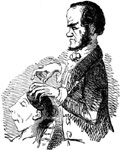
The Prison of “Freedom”
A CINEMATIC VIEW
Eric Rohmer’s Full Moon in Paris is a brilliant satire of the contemporary “free spirit” who is really not very free at all. Because of a misunderstanding of freedom and because of choices that actually work against her freedom, the “free spirit” of Rohmer’s film inhabits a self-made emotional prison.
Back in the 1950s (along with Francois Truffaut, Jean-Luc Godard, and Claude Chabrol) Rohmer wrote film criticism for the prestigious Les Cahiers du Cinema. With Chabrol, Rohmer produced what many consider to be the breakthrough book on Alfred Hitchcock. Since the appearance of Chabrol’s and Rohmer’s book, Hitchcock has been judged by an increasing number of critics as not only an entertainer but a serious artist. That the book emphasizes the Catholic elements in Hitchcock’s work may not surprise anyone who has seen Rohmer’s My Night at Maud’s, the film that established the French author/director’s reputation in this country.
My Night at Maud’s was one of “Six Moral Tales” that Rohmer created. Other well-known films in the series are Claire’s Knee, La Collectioneuse, and Chloe in the Afternoon. In these films Rohmer tried to depict the interior factors that influence an individual’s actions in a given situation. What is especially striking in the best of these tales is Rohmer’s success at depicting interior spiritual realities in concrete flesh and blood characters. In each of the six moral tales a man committed to one woman meets another woman entirely different from the first. That the man never sleeps with the second woman might mislead a viewer into thinking that this is the moral common to the six films. Not quite. Rohmer means more than that. He has said:
What I call conte moral is not a tale with a moral, but a story which deals less with what people do than with what is going on in their minds while they are doing it. A cinema of thoughts rather than of actions. The people in my films are not expressing abstract ideas…but revealing what they think about relationships between men and women, about friendship, love, desire, their conception of life, happiness….
In an extraordinary way in My Night at Maud’s, Claire’s Knee, and Chloe in the Afternoon, Rohmer got the interior factors that influence an individual’s outer actions onto celluloid. In each film the main character’s personality and spiritual condition is revealed, especially through speech. At times Rohmer’s dialogue can be quite cerebral — in My Night at Maud’s much screen time is given to an all-night discussion of philosophy, life, love, and religion, especially Catholicism — but the dialogue is never dull and the films are not static. Indeed, they are uniquely cinematic, bearing the mark of Rohmer’s simple visual style and his nuanced outlook on and delicate treatment of human relationships.
You May Also Enjoy
As a work of aesthetic beauty, of historical and biblical simplicity, and of theological profundity, the film ranks high as a great piece of Christian art.
Catholic breakdowns of religious barriers followed the breakdowns of ethnic ones, and, in practice, ecclesiastical discipline became much more lenient.
As I write this column, America’s magazines and newspapers are offering a fairly extended discussion…

